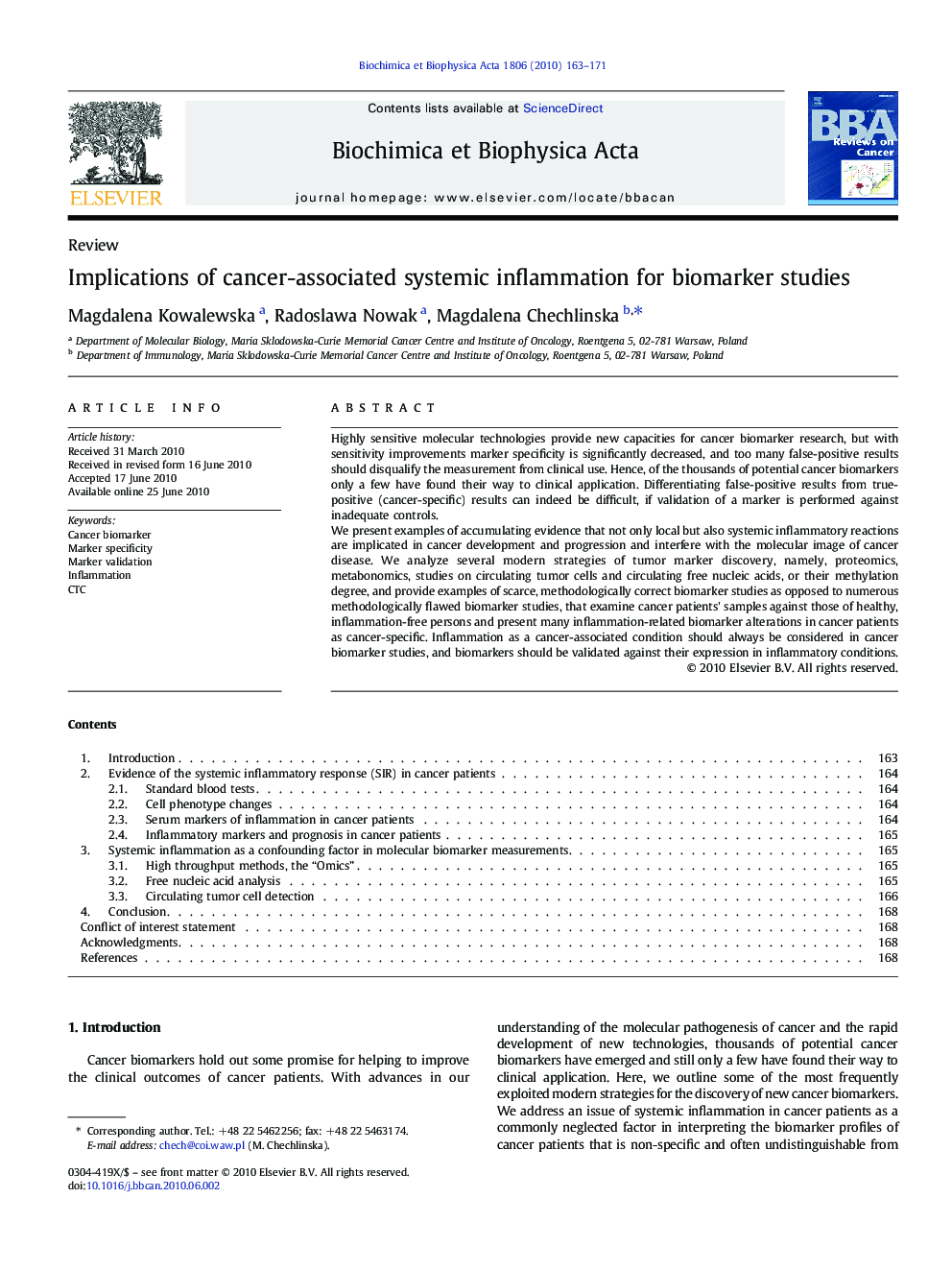| Article ID | Journal | Published Year | Pages | File Type |
|---|---|---|---|---|
| 2101010 | Biochimica et Biophysica Acta (BBA) - Reviews on Cancer | 2010 | 9 Pages |
Highly sensitive molecular technologies provide new capacities for cancer biomarker research, but with sensitivity improvements marker specificity is significantly decreased, and too many false-positive results should disqualify the measurement from clinical use. Hence, of the thousands of potential cancer biomarkers only a few have found their way to clinical application. Differentiating false-positive results from true-positive (cancer-specific) results can indeed be difficult, if validation of a marker is performed against inadequate controls.We present examples of accumulating evidence that not only local but also systemic inflammatory reactions are implicated in cancer development and progression and interfere with the molecular image of cancer disease. We analyze several modern strategies of tumor marker discovery, namely, proteomics, metabonomics, studies on circulating tumor cells and circulating free nucleic acids, or their methylation degree, and provide examples of scarce, methodologically correct biomarker studies as opposed to numerous methodologically flawed biomarker studies, that examine cancer patients' samples against those of healthy, inflammation-free persons and present many inflammation-related biomarker alterations in cancer patients as cancer-specific. Inflammation as a cancer-associated condition should always be considered in cancer biomarker studies, and biomarkers should be validated against their expression in inflammatory conditions.
